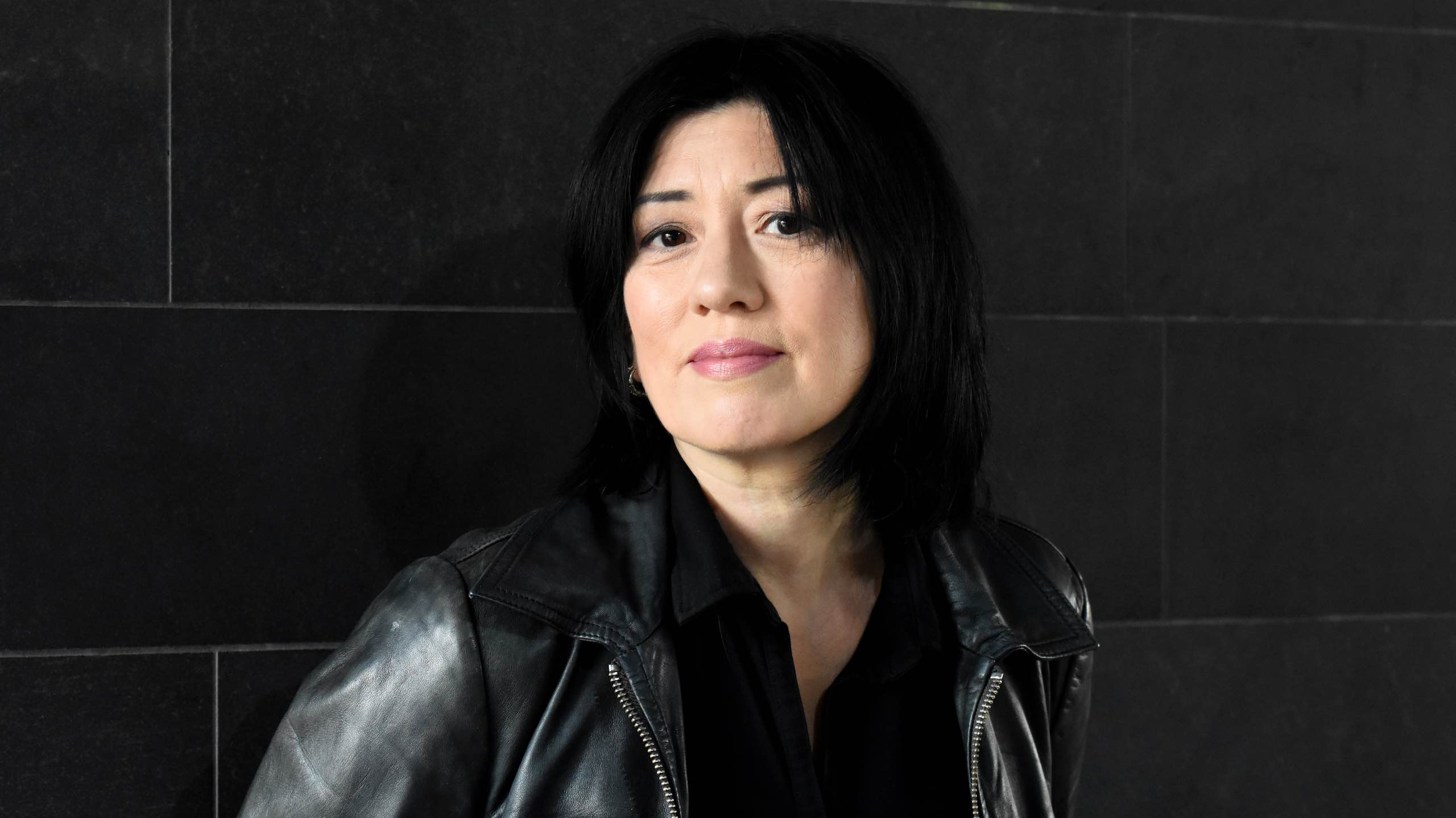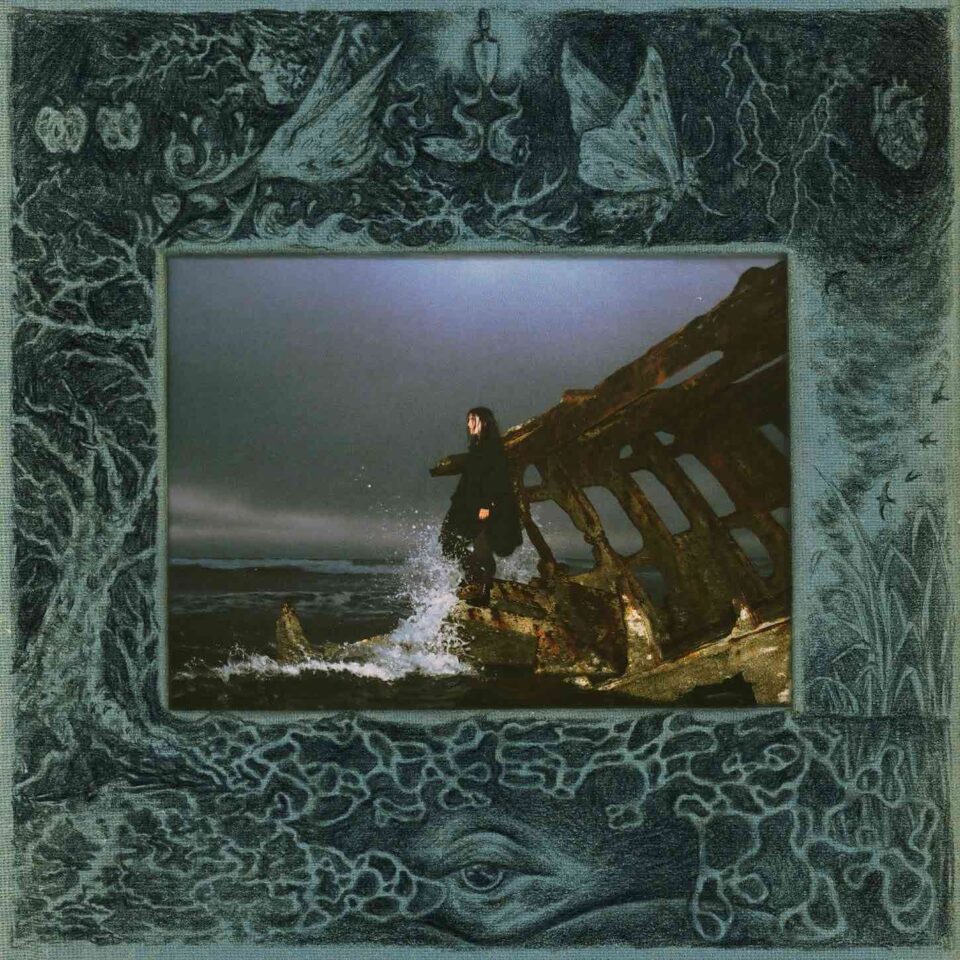In the late ’80s and early ’90s, a new musical genre emerged: shoegaze. With swirling, effects-heavy guitars and ethereal vocals, this highly atmospheric style captivated audiences around the globe—yet was also derided by many, especially British music critics, who viewed it as wispy and fanciful compared to the angsty grunge rock that was concurrently taking over the music world. One of the main bands to benefit/suffer from these opinions was Lush, a London-based quartet led by co-vocalists/guitarists Miki Berenyi and Emma Anderson. Their first full-length, 1992’s Spooky, epitomized the shoegaze style, while the ensuing Split and Lovelife earned the band another round of chart success in the UK and US. Tragically, drummer Chris Acland committed suicide in 1996, and the band called it quits the following year. Lush reunited in 2015, releasing the Blind Spot EP the following year, but the band once again imploded—and this time, the breakup seems permanent.
Berenyi has chronicled Lush’s ups and downs—and the rest of her colorful, unpredictable life—in a candid new memoir titled Fingers Crossed: How Music Saved Me From Success, which is getting a US release after hitting shelves in the UK in 2022. The England-born daughter of a Japanese mother and Hungarian father, Berenyi seemed destined for an unusual path from the start. After her parents divorced, her bohemian childhood had her bouncing across England, Hungary, Japan, and America. This unsettled life—and the abuse she suffered at the hands of her grandmother—led her to seek solace in music, and she began playing in a band with Anderson when she was a teenager.

With Lush, they achieved significant success, but their interpersonal strife and the pressure they faced as women in a misogynistic, male dominated music scene led to the band’s undoing. Yet Berenyi has kept her music career going beyond Lush, fronting the bands Piroshka and the Miki Berenyi Trio (with that latter band, she’ll tour North America in May and June, supported by Lol Tolhurst and Budgie).
During a recent video chat from her London home, Berenyi is clearly happy to have her book finally available Stateside. “We did do reasonably well in America—we probably did better in America than we did in Britain, actually—so it just seemed crazy to me that it wasn’t out there. So yeah, it’s good!” she says.
Find more from our conversation below.
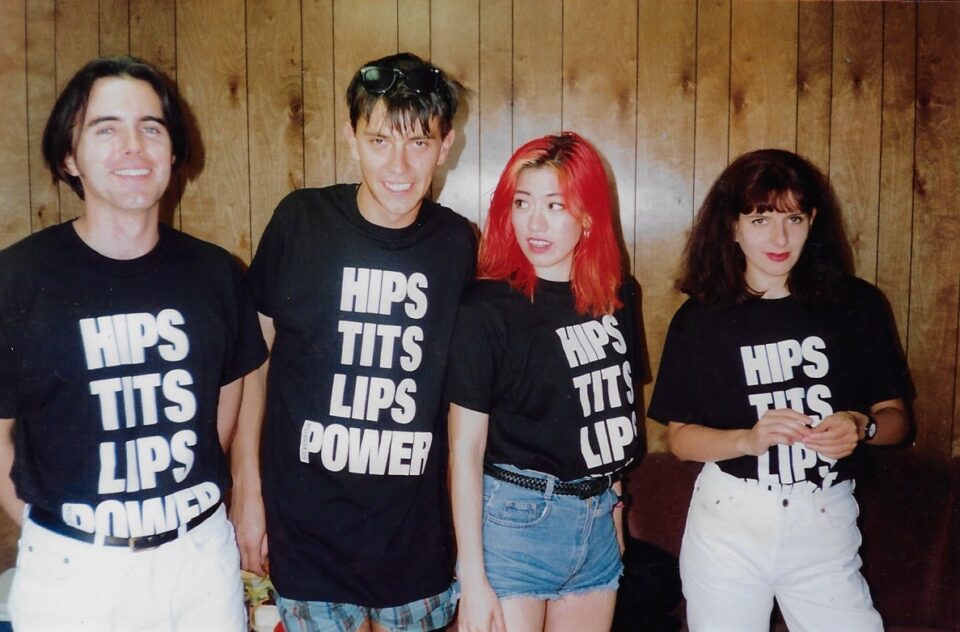
Lush backstage at Lollapalooza, circa 1992
You wrote this book yourself—no ghostwriter, right?
Yes, I did write it myself. It’s funny, this is the question I was never prepared for because I just thought that if a book is ghostwritten, it says so on the cover. I’ve since discovered that people just don’t mention it, which I’m astonished by. But I promise you, it’s 100 percent mine. I’ve been a [magazine] editor for 20 years, so it’s not a totally alien thing to me. Also, I knew what I didn’t want to write more than I knew what I did want to write. I wasn’t interested in a self-deifying, mythologizing, look-at-the-amazing-things-I’ve-done kind of book.
You’re very candid in this book about mistakes you’ve made, which doesn’t always happen in memoirs. How did you know that was the approach you wanted to take?
I think that’s the way I talk a lot of the time with my friends. That makes for a more interesting conversation. Most of what I read is fiction, and I think sometimes fiction can be sort of more real than certain kinds of [nonfiction] books, because you get a real sense of all the characters and all their flaws and how they interrelate—and that’s actually more interesting. Nobody reads a novel about someone who’s fucking perfect, because that would be incredibly dull. So it’s the intrigue and the development, the growth of that character and how they move through life that, to me, is the most interesting aspect of it.
“I thought, ‘I don’t want to write a book that just adds to that canon of everybody thinking how fucking amazing it is to be in a band.’ It’s not just this linear, one-dimensional experience.”

People may be surprised to find out just how much you struggled behind the scenes, even as Lush was having a lot of success.
I didn’t want to trash the band, because it was great—there were a lot of things that were absolutely brilliant about being in Lush. But I thought, “I don’t want to write a book that just adds to that canon of everybody thinking how fucking amazing it is to be in a band.” It is—the bits that are great are fucking amazing. But it’s not just this linear, one-dimensional experience. And a lot of the struggles are what make the good times actually more resonant, because you’ve had to fucking work your ass off to get there.
I did want to write a book partly for people who might not actually know that much about music or the behind-the-scenes stuff, just to get a sense of what bands go through when it’s quibbles about money or producers or tours. Everybody thinks it’s like the fucking Monkees or something, but there are complications behind the scenes. I’ve had a lot of band people coming up to me and saying, “Oh my God, the bickering, that was me and the bass player,” or whatever the hell. Which, again, I’m sort of glad, because there was a bit of me that thought, “God, this is quite exposing. Is everyone just going to think, ‘Well, that band was horrible to each other’?” But actually, most bands fall out. There’s all that drama.

Lush at Riverside in Newcastle circa 1989
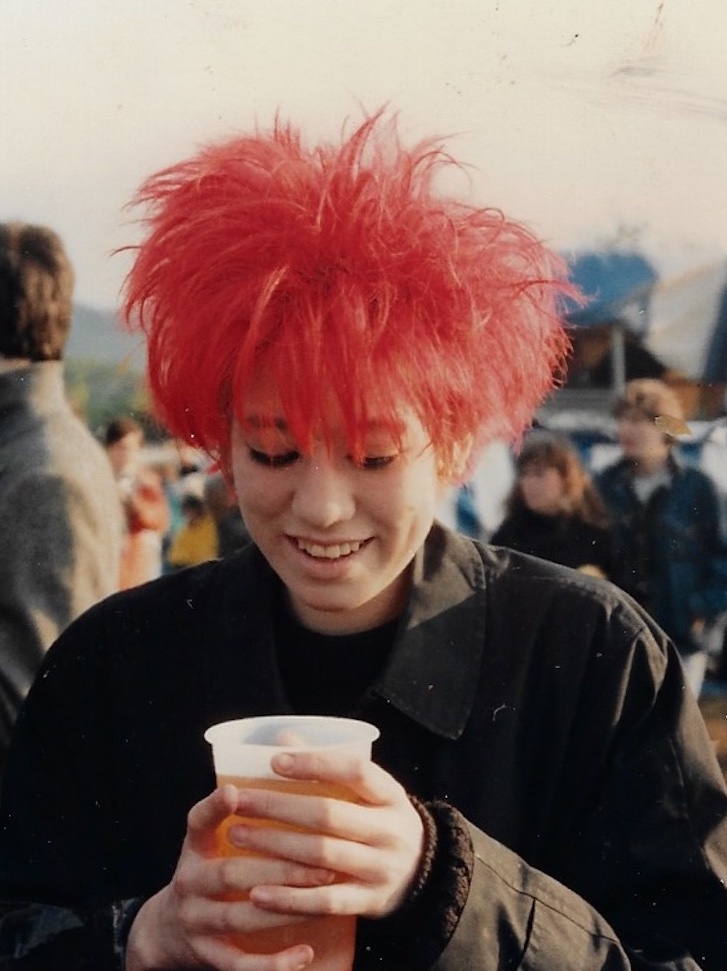
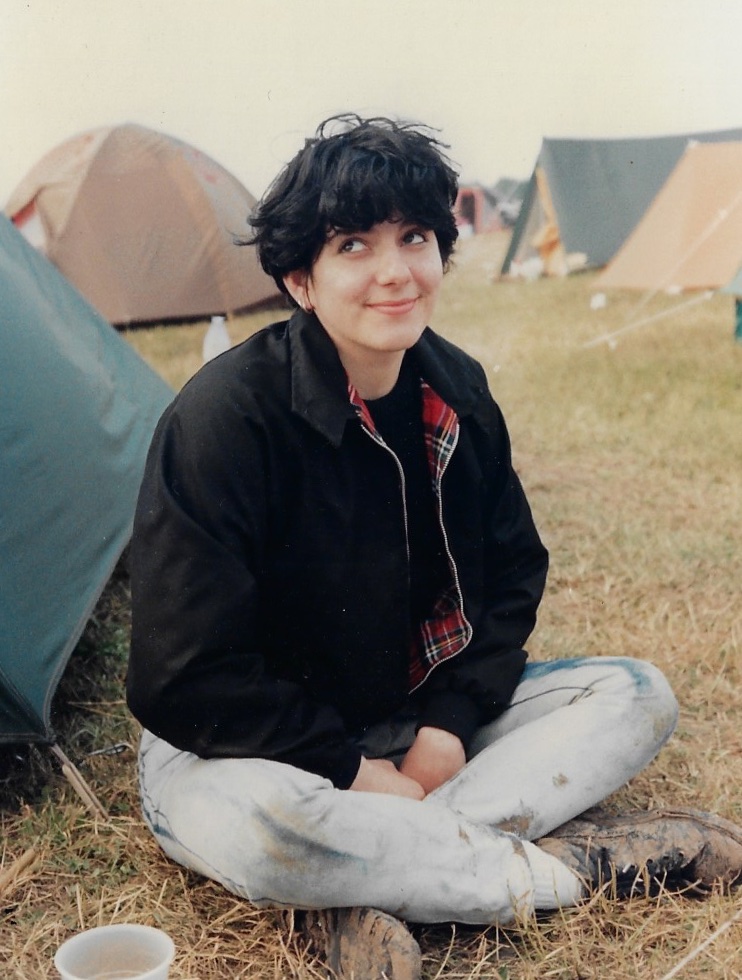

Lollapalooza, 1992, with Soundgarden’s Chris Cornell and Red Hot Chili Peppers’ Anthony Kiedis
It’s also interesting to read about your complicated relationship with Emma. Have you gotten any feedback from her about this book?
We did that Lush reunion tour, and it ended in a huge kind of bust up, so I haven’t spoken to her since then. At the time of writing the book, it was probably about four years on from that. So I did send her an advance manuscript. She didn’t respond very well, I have to say. I don’t know if that’s calmed down. There’s a bit of me that wonders, “Did you just do an ‘Emma’ search and not read all the stuff around it, and just see yourself and then freak out because it’s quite raw?” But then, all of it is quite raw. Nobody is given some red carpet treatment.
I think it was the complicated relationship between two girls who’d known each other since they were 14—possibly, I would argue, who would never really have stayed very close friends after school had it not been for the band that kept us together far too much for either of our mental health, really. Because I’m not sure how compatible we were in the first place. We had very different personalities. That’s what I was trying to get across in the book. Yes, we bickered and we got on each other’s nerves. I don’t think it was any one person’s fault, or real malice, that caused that. It was just two people trapped, in a way—but trapped because of good things. I think that Lush wouldn’t have existed if either of us had tried to do it with someone else. We really both needed to be there for it. But it was hard work getting along, as you can tell.
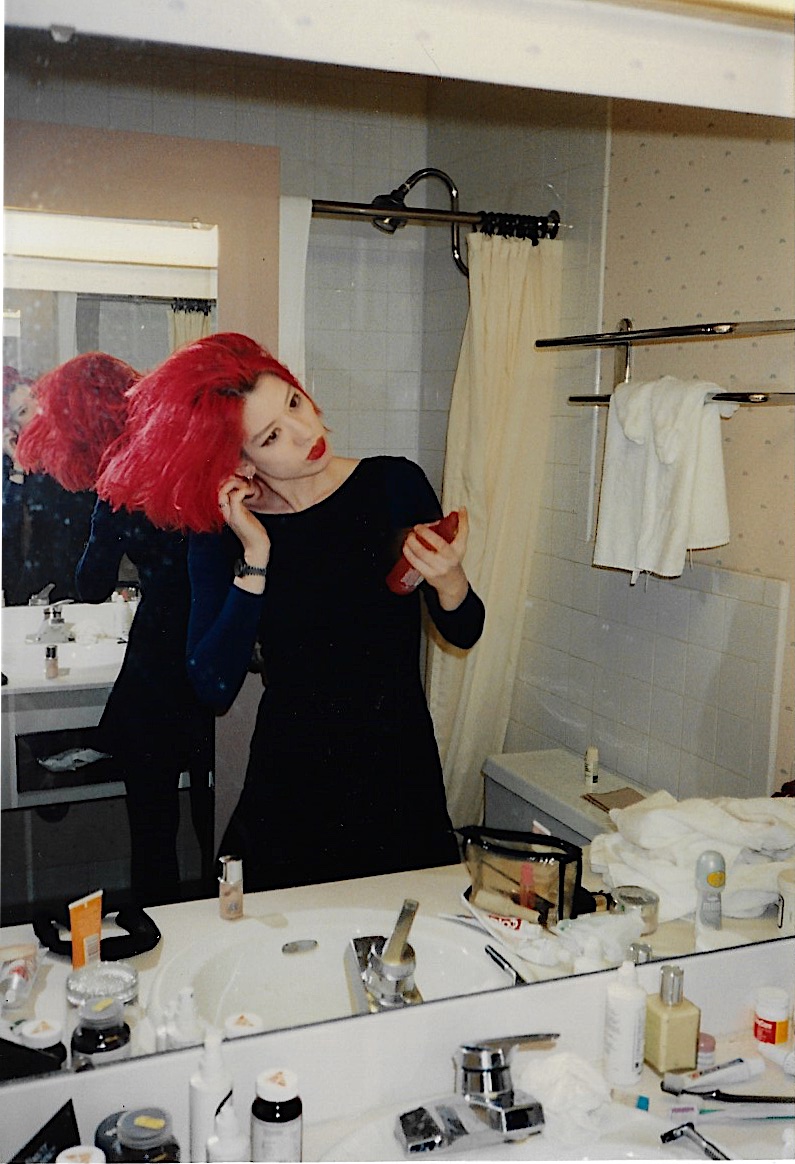
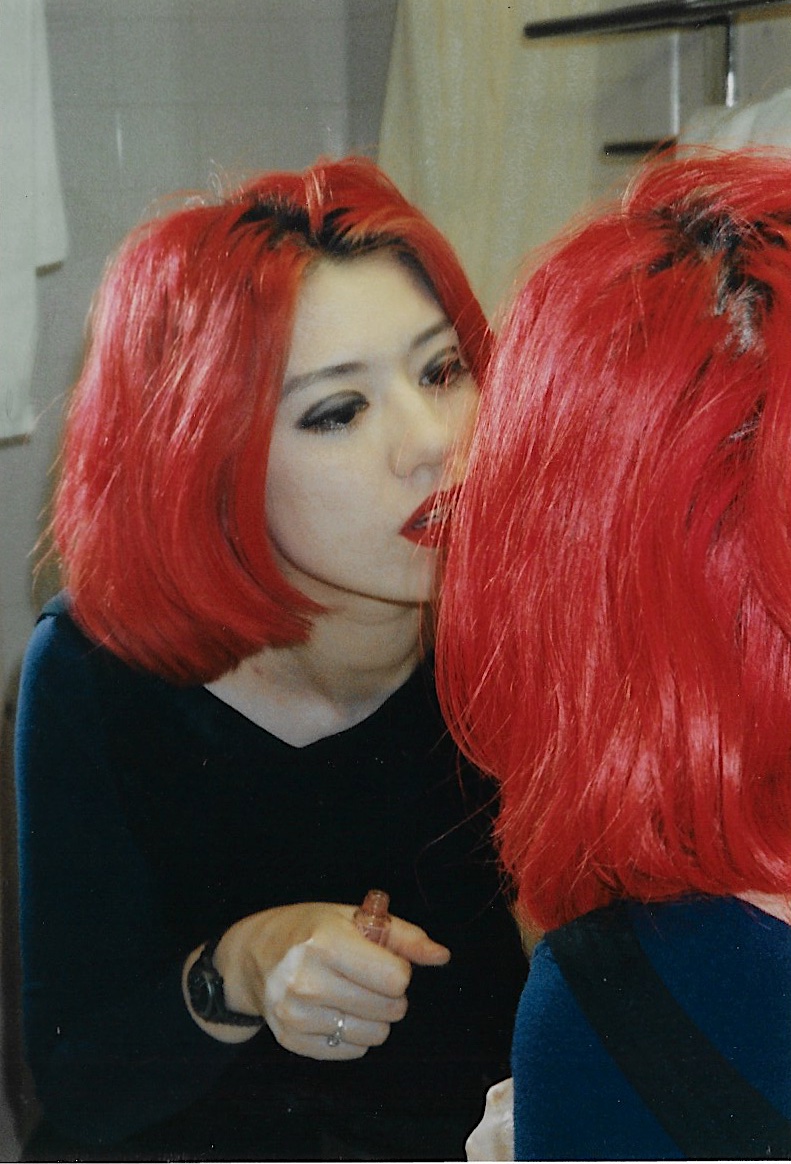
You wrote with empathy about Chris Acland. What was it like having to write about his life and death?
That was quite hard, I’m not gonna lie. Especially about his death. It was hard emotionally. I just wanted to make sure that he was a living, breathing person throughout the rest of the book, and [include] all the good stuff and the funny stuff. And not making him out to be a perfect person, because he wasn’t. It’s so difficult with a suicide because people just remember them as a tragic figure, which Chris just wasn’t. There was no hint of him doing something like that until literally about a month before he did it. And even then, it was a complete shock. So I think there was a responsibility to make him a fully blown human being in the book.
Next up you’ll tour North America in May and June, and will release new music with your new trio. Tell us about that band.
When I would do these book events, they would always go, “Can you do some music, as well?” So the three of us [Berenyi, K.J. “Moose” McKillop, and Oliver Cherer] thought, “We can just play a few Lush songs and do it with a backing track, like drums on tape.” But then we started to get offered gigs. And also, we were having quite a good time. We thought we could start writing songs and turn it into a band, which is what we did. We’re in the process of writing an album, and we’re playing gigs. We’re slowly moving the Lush songs and the Piroshka songs out of the set as the new songs come in. So it’s actually a work in progress! FL

"Photo-booth feature for Select magazine, the A-L of Lush, hastily carried out before boarding a flight at Heathrow. Apple, Beer, Coke, Dino, Ecstasy, Fuck off, Goth, Howard (our manager), Indian (apologies for stereotype, different times etc), Jugs, Kiss, LUSH!"

